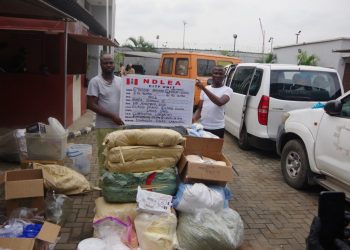The United Nations Human Rights Council has expressed deep regret over the United States’ decision to withdraw from a key review of its human rights record scheduled for this week in Geneva.
The review, known as the Universal Periodic Review, UPR, is a process through which all UN member states have their human rights performance evaluated by their peers. The U.S. was expected to appear before the Council’s Working Group on Friday but declined to participate marking the first time the country has refused to undergo its own review.
UN Human Rights Council President Jürg Lauber presided over the session originally scheduled for the U.S. review. He and other Council members urged Washington to resume cooperation, noting that the review has now been rescheduled for 2026, though it may take place earlier if the U.S. re-engages.
The Council’s statement comes amid continued fallout from the Trump administration’s disengagement from the Human Rights Council. Although the U.S. is no longer one of the 47 Council members, it remains an observer state and can still participate in proceedings.
READ ALSO: Human rights body deplores violation of Emmanson’s rights
The U.S. previously withdrew from the Council in 2018, but still participated in its 2020 UPR, making this year’s boycott unprecedented. Reports prepared by UN experts and civil society groups for the 2025 review remain available online, though the U.S. failed to submit its own national report before the deadline.
The Council emphasized that the UPR process depends on equal participation by all 193 UN member states and vowed to continue diplomatic efforts to encourage U.S. cooperation.
Meanwhile, UNICEF Goodwill Ambassador Orlando Bloom visited Bangladesh to witness the impact of aid cuts on children in Cox’s Bazar, home to nearly one million Rohingya refugees who fled persecution in Myanmar.
Bloom met with families and children who are “100 per cent dependent on aid,” warning that reductions in international funding threaten education, health, and survival in the camps.
“It’s a very transient environment, there are so many people coming and going,” the British actor and UNICEF advocate said, calling for renewed support for vulnerable communities.

















